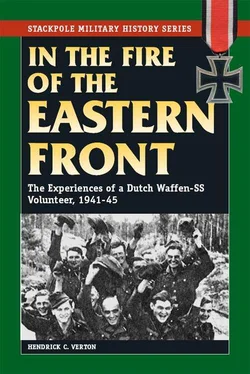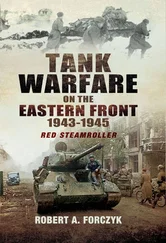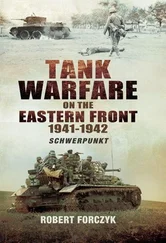We, together with a dozen other colleagues, entered the cage. It took us down below at a rate of 20 metres per second. But we were still not at our place of work when we reached the bottom of the shaft. We had two kilometres to walk, that meant being bent almost double, and having to step over rail-tracks and electric cables, and always knocking our heads as we went. It was unexpectedly vast. In our pit alone, there were 200 kilometres of tunnelling. In total it was 5,000 kilometres in the west German mines, longer than the flight-path from Hamburg to Cairo!
I was plagued with a vision at the beginning of this work, of a worm being crushed from an avalanche of earth and stone. We were after all, a thousand metres below the surface, under towns, under cemeteries and to say nothing of rivers! Claustrophobia at this time, was the last thing that I needed. So it was nose to the grindstone and get on with the job.
The pressure of this work played on our nerves at times. Some miners were liable to this more than others. It made them argumentative to the point of disputes, as Evert found to his cost one day when he landed on the wrong side of one. It really had started from nothing. It resulted in a punch-up and Evert and his opponent waltzed in the coal-dust, with blood on their bare chests. I was held back forcibly by the others, when wanting to help him. It was the ‘Inauguration to the Association of Moles’, for like animals, we had to learn who had the say, who was the boss and where our place was, which we had to keep. The supervisor of our seam separated the pair of them and the whole dispute was then forgotten. We came to be a close-knit band, for were we not all in the same boat? We all gritted our teeth, we gave sweat and blood. We soon learned to depend on the experience of our colleagues who had been miners for far longer than any of us. They saved our lives, more than once, from avalanches of earth and stone, which was my nightmare. We did not recognise the ‘stretching and groaning’ of the mountain that warned them far earlier than we realised.
Somehow the sounds of the underworld were just the same as those of the war. There were pneumatic drills, replacing the machine-guns, and dynamite replacing the exploding bombs. There were injured and the dead, just as on the battlefield. The safety of the miners was not an important factor. It was not on the investment plan and there was a lack of the most experienced of the miners, for there were still very many of them sitting in prison as Nazis.
Two years before Evert and I enrolled for this new work, there had been a loss of 411 men from the neighbouring Grimmberg Colliery. At mid-day on 20 February 1946, a blue and red flame shot out of the shaft, the earth shook like an earthquake as a mixture of methane gas and air caused an explosion. That happened eighteen months after a previous explosion caused the deaths of 107 miners, as the result of an air raid.
We had deaths in our colliery too, and were witness to terrible injuries. Evert and I only ever had a graze or two. We most certainly did not believe in the ‘troll of the mountains’ and his ‘aggressive powers’ over those daring to intrude into his world which could certainly be ‘spooky’. Often there was nothing to be heard but a monotonous drip, drip of water whose echo mixed with the airwaves. When the old and porous support beams soaked in phosphor glowed in the dark, then the gullible could believe in a ‘something’ which they could not define, and so were willing to believe in that ‘little beast’.
At the end of the day, and as Brigitte picked me up from work, she had difficulty in recognising me as we left the cage to cross the yard to the shower-room, for we all looked alike, like Blackamoors. So she waited until one of those black beings winked at her and it was me. It was like a conveyor-belt in the hot steamy shower-room. We stood in a long line and soaped the back of the man in front in readiness for a good scrub. We were always about an hour before we could be called clean, and then we all had black rims around our eyes, like women with eye make-up.
One could not ignore the fact that many of the old miners were chronically, even terminally ill. One could hear the hacking, raw coughs of those invalids on the streets. There was no shower that could wash the dust-caked lungs of those men, trying to take some fresh air into their clogged lungs that no longer functioned properly.
One day passed into the next. But one day was not like any other for Evert, for he was suddenly seized with miners’ claustrophobia. He simply had to leave the seam in which we were working and reach daylight. He never went underground again. That was not unusual amongst miners. I was not affected in the same way, but I too left some months after Evert. My next job was also underground, but not to the same extent, for it was a vaulted wine-cellar and only a couple of metres under the surface. I climbed inside the giant wine vats to wash and brush them, as I was the right size to climb into the small openings. I washed the wine-bottles and re-filled them too.
We experienced a distinct improvement with the Currency Reform of 1948. Overnight the shops filled with all of the pre-war goods that we had been denied, with a shake of the head, from shop-owners. Every man received a one-off payment of 40 marks, but the rationing was not yet at an end.
After five years of separation, came the day in the summer of 1949, when I could take my mother in my arms at long last. She arrived by train in Dortmund. It was extremely moving, for I had not seen her since 1944. Some of my letters had not reached her, so she did know that I had served some of my time in East Prussia, Silesia and Breslau. She had not known about my time as a prisoner under the Russians. Now we were all together and she met her daughter-in-law, although at first there were language problems.
The presence of my family rather complicated my life. It appeared for some to have contradictions. As a ‘refugee’ from the east my mother was no longer my mother but an ‘aunt from Holland’. Brigitte and I had moved house since working in the mine. We now lived in a house owned by my former colliery director, who was always very friendly and sympathetic to us. I decided to make a clean breast of things to him. I was glad that I did, although it had not been necessary, for he had guessed anyway. It was however a relief to no longer have to hide the truth.
I was glad to have my work in the wine cellar. But it was not for life as it held no future, no advancement. With the land in ruins, the building trade offered work that did hold a future. The future Federal capital city, Bonn, seemed to be just the right place to look.
We were very impressed with Königswinter and its district. On a visit we made, the countryside of the Rhine and the Siebenbürge area seemed so much nicer than the mountains of black coal and silhouettes of mine works visible in the Ruhr. Bad Gödesberg in particular, with its tree-lined avenues, plus the style of the old villas, which had been spared the bombing raids, reminded me of the sleepy suburbs of Holland. A Cologne-based firm engaged Evert and I and sent us to Bonn. There we became floor-layers, of every type. With the construction of this new federal capital, there was an excess of work to be found, in new buildings of government, universities etc.
A year later, and with our move to Bad Gödesberg, we changed our work once more, to a firm in Königswinter, very near us. We had ended up with a former colonel who had been a commander in Hitler’s HQ in Prussia. He was the son-in-law of the owner of the perfume emporium “Eau-de-Cologne and Toilet-water”. He owned an estate, the Wintermuhlenh of near Petersberg and directed firms in different branches. Most of his employees were former officers. Most of his guests too, were from all branches of the former armed forces. They could be seen with him walking around the park. Although many impediments had been placed in the path of former German soldiers, many found their feet again quite quickly after the war. They were helped by having a positive mentality, and discipline from their soldiering days. Their behaviour towards their comrades, their conscientiousness and organisation, all of these were important assets for the reconstruction of the German economy.
Читать дальше












